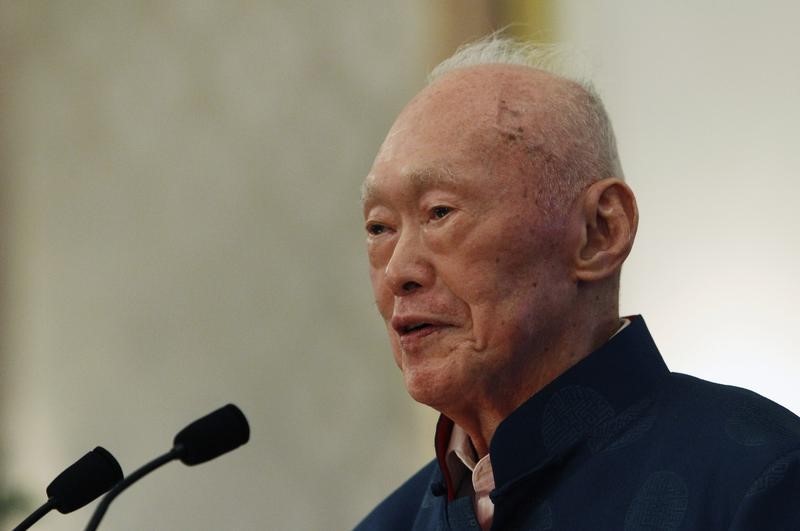SINGAPORE (Reuters) - Lee Kuan Yew, Singapore's first prime minister, remains in intensive care after being admitted to hospital with severe pneumonia but his condition has improved slightly, the government said on Saturday.
Lee, who turned 91 last September, has been in hospital since Feb. 5. He is widely credited with the city-state's economic success.
"Lee Kuan Yew's condition has improved slightly. He remains sedated and on mechanical ventilation in the ICU (intensive care unit)," said a statement from the office of the current prime minister, adding that Lee was continuing with his antibiotics.
Saturday's statement is the second on Lee's health in three days after rumours spread on social media on Wednesday night that he may have died.
Although Lee has receded from the public and political scene, his health is watched closely as he is still seen as an influential figure for the government of Prime Minister Lee Hsien Loong, his oldest son.
Lee, a Cambridge-educated lawyer, had a central role in building Singapore into one of the world's wealthiest nations on a per capita basis with a strong, pervasive role for the state and little patience for dissent.
He co-founded the People's Action Party, which has ruled Singapore since 1959 and led the newly born country when it was separated from Malaysia in 1965.

In a book published in 2013, Lee said he felt weaker by the day and that he wanted a quick death.